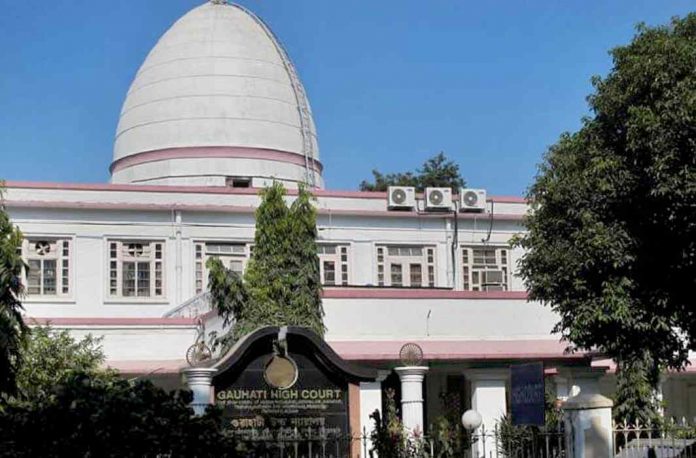The Gauhati High Court has set aside the conviction and life sentence pronounced to a man under Section 302 of the Indian Penal Code by a trial court and observed that extra-judicial confession is always a weak piece of evidence.
In November 2015, an FIR had been lodged alleging that on the previous night informant’s brothers (the appellant/ applicant) and one other person had a quarrel, and thereafter, the appellant confessed before the informant that he had killed the other person by hitting him on his head with a metate (grinding stone).
The dead body of the deceased was subjected to post-mortem examination. The doctor opined that the cause of death was due to coma as a result of injuries sustained on the head. The doctor further opined that the injuries were ante- mortem and caused by blunt force impact.
On conclusion of investigation, police filed the chargesheet. During the trial, the prosecution examined as many as 8, witnesses including the investigating officer and the doctor who had performed post-mortem examination upon the dead body of the deceased. The defence plea is of total denial. Finally, on the basis of the evidence on record, the trial court arrived at the impugned finding.
The trial court accepted the extra-judicial confession made by the appellant and on the basis of that, arrived at the impugned finding.
In Sahoo v. State of U.P. AIR 1966 SC 40, it was held that ‘an extrajudicial confession may be an expression of conflict of emotion, a conscious effort to stifle the pricked conscience; an argument to find excuse or justification for his act; or a penitent or remorseful act of exaggeration of his part in the crime.’
The Supreme Court in Arul Raja v. State of Tamil Nadu, (2010) 8 SCC 233 ruled thus : “55. In view of the above case law, it is made clear that an extra-judicial confession is a weak piece of evidence. Though it can be made the basis of conviction, due care and caution must be exercised by the courts to ascertain the truthfulness of the confession. Rules of caution must be applied before accepting an extra-judicial confession. Before the court proceeds to act on the basis of an extra-judicial confession, the circumstances under which it is made, the manner in which it is made and the persons to whom it is made must be considered along with the two rules of caution: first, whether the evidence of confession is reliable and second, whether it finds corroboration.”
Reverting to the case in hand, the bench of Justices Suman Shyam and Parthiv Jyoti Saikia noted that an extra-judicial confession, if voluntary and true and made in a fit state of mind, can be relied upon by the court. The confession will have to be proved like any other fact. The value of evidence as to confession, like any other evidence, depends upon the veracity of the witness to whom it has been made. Such a confession can be relied upon and conviction can be founded thereon if the evidence about the confession comes from the mouth of witnesses who appear to be unbiased, not even remotely inimical to the accused and in respect of whom nothing is brought out which may tend to indicate that he may have a motive of attributing an untruthful statement to the accused.
“Extra-judicial confession is always a weak piece of evidence. There is neither any rule of law nor of prudence that evidence furnished by extrajudicial confession cannot be relied upon unless corroborated by some other credible evidence.
However, for acceptance of extra-judicial confession, it must be established by cogent evidence, as to what were the exact words used by the accused. Such a confession may be used only as a corroborative piece of evidence,” the Court observed.
The appellant allegedly confessed about his guilt to PW-2 when he was in the company of some other persons. Those persons were not examined by the prosecution. The PW-2 did not reproduce the exact words used by the appellant. His evidence remained not corroborated by any prosecution witnesses. The appellant might have stayed together in the same house with the deceased but the evidence of PW-2, regarding extra-judicial confession by the appellant, has not been corroborated by any other evidence. An extra-judicial confession, like any other fact, is also required to be proved by cogent and reliable evidence. The uncorroborated testimony of a witness is not sufficient for conviction of an accused. For this reason, the Court have reasons to hold that the uncorroborated evidence of PW-2 cannot be accepted in its face value, the Court further observed.
Therefore the Court held that the trial court has erred while accepting the uncorroborated evidence of PW-2 . The Court opined that the prosecution has failed to prove the charge brought against the appellant beyond all reasonable doubt. There is a thick cloud of doubt about the veracity of the prosecution case against the appellant. Naturally, the benefit of doubt must be given to the appellant, the Court concluded while allowing the appeal.


